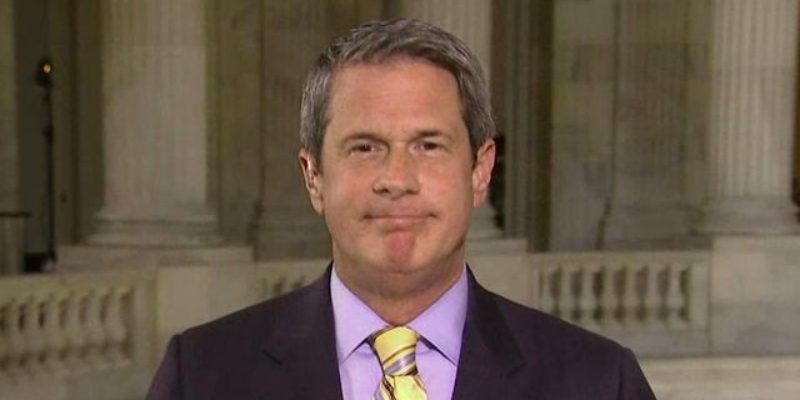From a press release out this morning…
As he participated in two gubernatorial forums today before business groups, David Vitter announced his strong opposition to Governor Jindal’s inventory tax proposal, contained in the governor’s recently submitted budget.
Under the Jindal proposal, the refundable portion of the inventory tax credit would be repealed. This would be a huge tax increase to thousands of employers.
Vitter also outlined his very different approach to the inventory tax. This approach would involve completely repealing the tax, offering local government alternative revenue from the state instead, and thereby preventing the liability to the state from growing every year without limit.
Vitter’s full statement follows:
“I really think the Governor’s proposal to repeal the refundable portion of the inventory tax credit is a horrible idea. It would represent a huge tax increase on thousands of employers. And it’s an absolute killer of jobs and growth.
“That’s why any inventory tax is a huge negative in rankings of state business climates. And why so much effort was put into effectively getting rid of the inventory tax on businesses several years ago.
“But just because some Washington political groups have given Governor Jindal permission to repeal refundable tax credits without calling that a tax increase, the governor has proposed repealing virtually all of these, whether it makes sense in each case or not. And just because those same groups won’t give him permission to repeal non-refundable credits and the like, the Governor is protecting virtually all of those, whether it makes sense in each case or not.
“Instead of this approach, I would apply an objective cost-benefit analysis to all state tax credits, exemptions, and deductions. I’d propose getting rid of those that don’t pass that test and keeping those that do.
“Now we do need to reform the inventory tax system, but not by bringing back a big part of that burden on businesses. What’s broken with our present system is that local assessors, with some input from the businesses involved, value inventory and thus determine tax liability. But it’s the state, which has no say in that process, that has to pay the bill. And that bill keeps going up and up over time.
“Instead, I would propose getting rid of all aspects of the inventory tax and replacing it with another revenue stream from the state to local government. This would be far simpler for businesses. It would guarantee local government that revenue they have traditionally received and depended on. And it would protect the state from a bill that grows significantly every year without end.”
Vitter is essentially saying that he’s for having the state government continue to subsidize local governments, but the problem with the current structure is the state doesn’t have a say in how much of a subsidy the locals will get. Currently, since the state is reimbursing businesses with the inventory tax credit on a dollar-for-dollar basis so what happens in practice is that local governments can hit businesses with whatever punitive taxation on movable property they can dream up with no pushback from those businesses at all – because no matter what taxes are on paper, the effective rate is still zero after the state reimburses the taxpayer.
And that’s how the state’s refundable inventory tax credit has gone from $50 million a year when it was put in place in the early 1990’s to close to half a billion dollars now.
Vitter says if the inventory tax was wiped out and replaced by a state subsidy, there’s a better chance of avoiding a runaway expense. And he’s right on that score.
On the other hand, it’s not a perfect idea for the state to generate a revenue stream to send to the locals, because if you do that you’re going to exacerbate a problem you’ve already got in Louisiana – namely, that every year the locals show up in Baton Rouge to beg at the legislature rather than generate their own money and be accountable to their own taxpayers. Allowing them a sugar daddy at the Capitol will incentivize them to continue growing their budgets and reach, and it will create ever-increasing pressure on the Legislature to tax the citizenry more to feed the sheriffs and assessors who have such power over the leges.
So there’s a balance to be struck.
Perhaps a bill like HB 187, by Rep. Helena Moreno (D-New Orleans), might be a part of the answer Vitter is looking for. Moreno’s bill would empower local governments to institute their own cigarette taxes and therefore raise some of their own revenue. But of course, you’re not going to replace $500 million in inventory taxes with local cigarette taxes, and even if you could you’d be putting local governments in a position to be in the cigarette business since their revenues will then depend on how much their people smoke. Or perhaps the two bills by Rep. Harold Ritchie (D-Franklinton), both of which would raise the state cigarette tax to $1.54 per pack, could dedicate those revenues to local governments – with the same basic problem of promoting vice politicians say they want to stamp out.
Of course, the easiest way to give local governments an opportunity to raise revenues without begging at the Capitol is to reduce the state’s gigantic $75,000 homestead exemption. You won’t hear anyone who’s running for office say a word about that, though.
Advertisement
Advertisement

